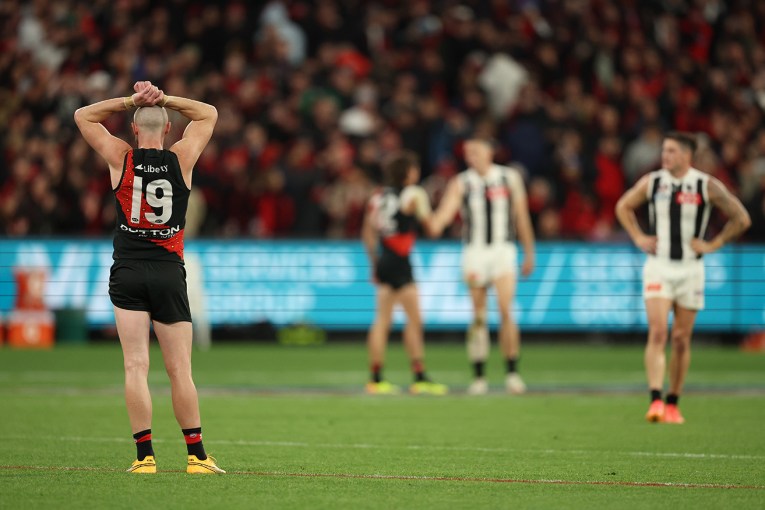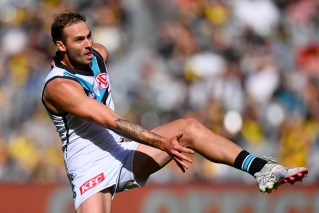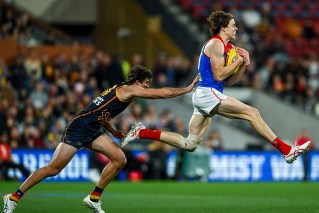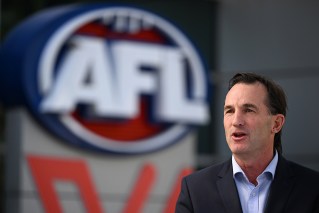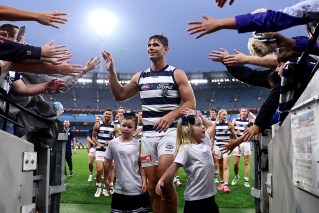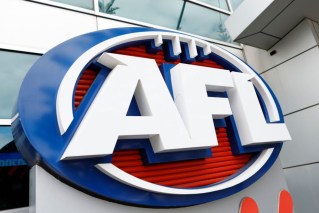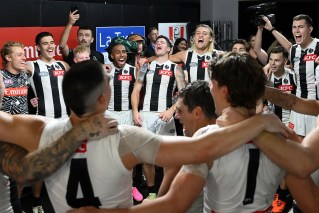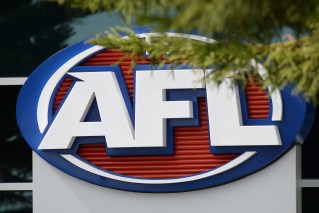The three men who will decide the future of footy
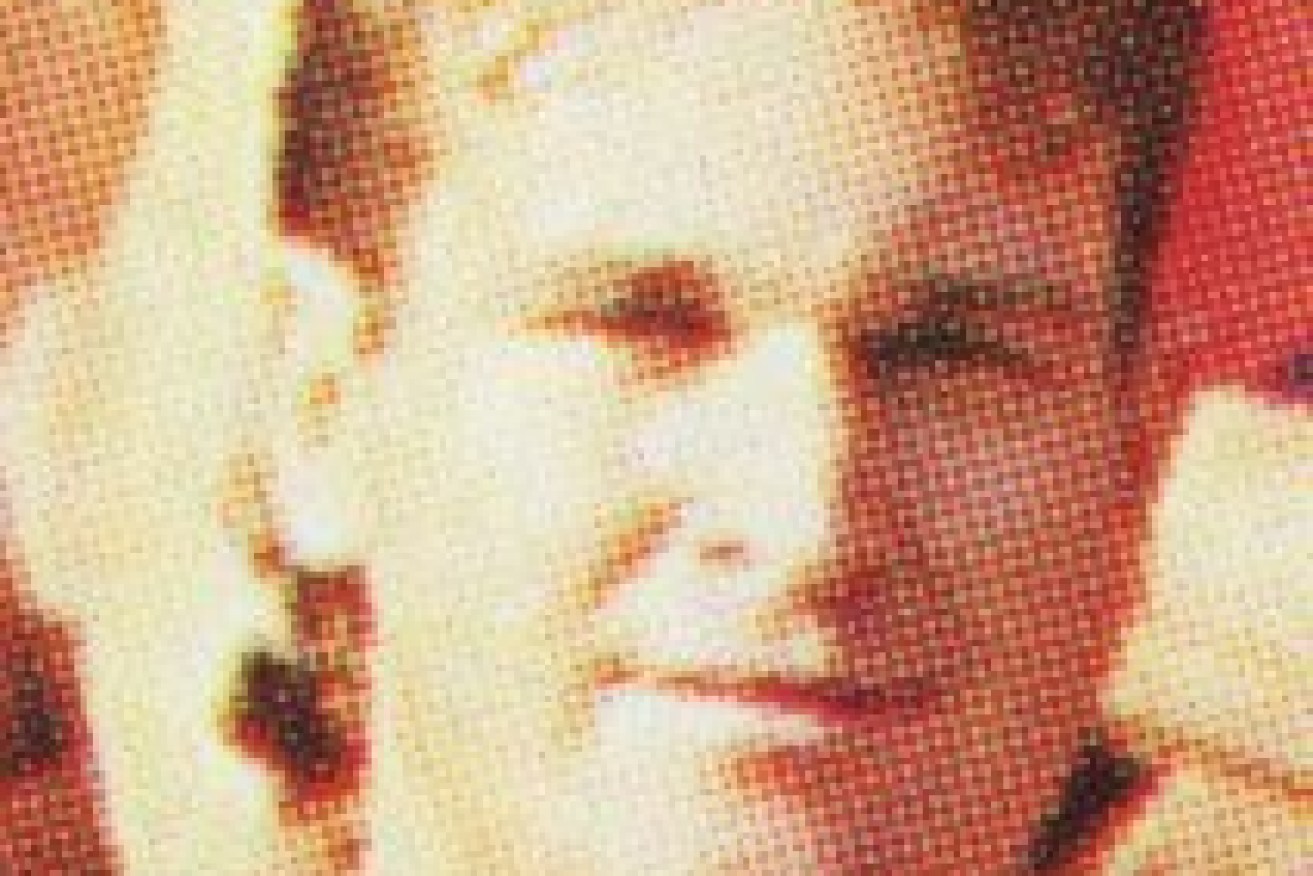
Demonwiki.org
On a Sunday afternoon in 1990, Melbourne media executive Alan Howe sat at the Sydney Cricket Ground watching a struggling Swans team do battle with lowly Fitzroy. The crowd was modest and so were the skills on offer.
Midway through the first term, Sydney’s Wayne ‘Moose’ Henwood, a hulking defender/ruckman, fumbled the ball a couple of times and then kicked out straight to an opposition forward.
“He was having a bad day and I felt the need to explain this to him,” Howe recalls. “So I shouted, ‘Get off the ground, Henwood’.”
What happened next astonishes the father-of-two to this day.
• Hawks gunning for historic AFL treble
• Fire and ice: Kerr and Cousins need to find their way
• Hunter cleared in betting inquiry
According to Mr Howe – Henwood refused to be interviewed for this article – the Swans player strode to the fence and remonstrated with him.
“I thought it was a moment of hot-headedness and would pass,” recalls Mr Howe. “(But) I was wrong. At the end of the quarter, Henwood returned to the fence, pointed at me and said a few things. At three-quarter-time he was back. With the same message.”
Mr Howe wasn’t inclined to stick around. Midway through the last quarter, with Henwood’s voice still ringing in his ears, he “remembered that I was due home to help out with dinner that night” and left the SCG.
Almost 25 years later, Henwood is still a defender. But he long ago hung up his football boots, preferring to do battle these days as a barrister in Victoria’s courts of law.
Next week Henwood, David Jones and John Nixon – the AFL’s Anti-Doping Tribunal – will rule on 34 past and present Essendon players facing doping charges.
Like the rest of the football world, Mr Howe, a passionate Magpies supporter, will be transfixed by what the tribunal decides.
While the Essendon saga has played out painfully for more than two years, precious little is known about the three men who have been hearing evidence in camera since December 15 and who will sit in judgement on March 31.
So who are they?
Wayne Henwood played VFL/AFL from 1987 to 1992, running out 78 times for Sydney and once for Melbourne. At 191cm and 110kg he was a force to be reckoned with. He became a barrister in 2005 in Melbourne and sat on the AFL Tribunal from 2009 to 2011.
He’s not the only tribunal member to have a football background. Indeed, chairman David Jones is a former Fitzroy reserves player who has a distinguished legal career behind him. He’s also no stranger to high-profile tribunal hearings.

David Jones is the Chairman of the AFL Anti-Doping Tribunal and he is no stranger to big footy decisions. Photo: YouTube
In the lead-up to the 2005 grand final between the Sydney Swans and West Coast Eagles the entire football world, and a few more besides, fixated on whether the AFL tribunal would free star Swans full forward Barry Hall to play in the match.
Newspaper front pages, back pages and a lot of pages in between were dominated by whether he’d take his place on the last day in September.
The tribunal’s decision would be pivotal to the outcome of the game: Hall kicked 80 goals that season.
Most experts thought his chances weren’t good. In the preliminary final against his old club St Kilda, Hall had punched his opponent Matt Maguire in the stomach as play went on in the centre square more than 50 metres away. It was a hefty punch and, worse, it had been captured on video.
A panel of three jurors – ex-players Emmett Dunne, Richard Loveridge and Wayne Schimmelbusch – heard evidence under the direction of tribunal chairman Jones. In what many saw as a contentious decision, the tribunal downgraded Hall’s charge, freeing him to play in the grand final. The Swans won the match by four points, ending a 72-year premiership drought.
Mr Jones is a former chief of the Australian Broadcasting Control Board, a precursor to the Australian Communications and Media Authority.
A retired County Court judge, he headed up the Special Investigations Monitor of Victoria – charged with regulating the Office of Police Integrity – for five years and more recently sat on the Adult Parole Board of Victoria.
It was Mr Jones who ruled that this final part of the Anti-Doping Tribunal be carried out with no media coverage allowed.

Wayne Henwood in his Demon days. Photo: Demonwiki.org
The third tribunal member is also a former County Court judge. John Nixon has extensive experience in sports tribunals, including sitting on the Racing Industry Board at the Victorian Civil and Administrative Tribunal since 2010.
It was in that capacity he may be best remembered – Mr Nixon was half of the decision-making team who ruled jockey Craig Williams could not ride in the 2011 Melbourne Cup on Dunaden.
A win in the Cup would have made Williams the first jockey to complete the unprecedented Caufield Cup, Cox Plate and Melbourne Cup treble in the same year.
Dunaden won the race in a photo finish over the luckless Red Cadeux in the race’s closest finish in history, ridden by French jockey Christophe Lemaire.
Williams wanted his hearing for a ‘careless riding’ suspension to be delayed until after the Cup so he could ride in the race.
Why the finding could determine the fate of footy
The fate of the 2015 season and, more broadly, the reputation of the AFL industry could hinge on the decision to be handed down by the tribunal next week.
AFL clubs are losing money, sports like soccer and cricket enjoyed superb summers hosting major tournaments, and even AFL CEO Gillon McLachlan is sick of the doping saga.
The former president of the Hawthorn Football Club, Jeff Kennett, told The New Daily the trio’s decision could be “disruptive” to the 2015 season and that “hangovers” of the ordeal could hurt the code’s brand. He believes a ruling that doesn’t appease the football public could “do damage … to Australian Rules as we know it”.
Inevitably, the scheduling of the tribunal’s decision, just two days before the start of the 2015 season, has many people speculating. A guilty verdict, so close to Round 1, would surely throw season 2015 – or, at least, the early rounds – into chaos with Essendon forced to use top-up players to field a side.
A not guilty verdict might provoke scorn, even anger from some, but it would only dominate news services for 24 hours before the opening games of the new season rightfully take their place on the front, middle and back pages of newspapers.
Mr Kennett says that either way the decision “is going to be disruptive and it is going to take people’s attention off the fundamental game”.
Would one outcome be better than another?
“If no one is charged that might put an end to it,” Mr Kennett said.
“If people are charged I think that might open up a raft of legal actions, which might continue the saga for some time.”
